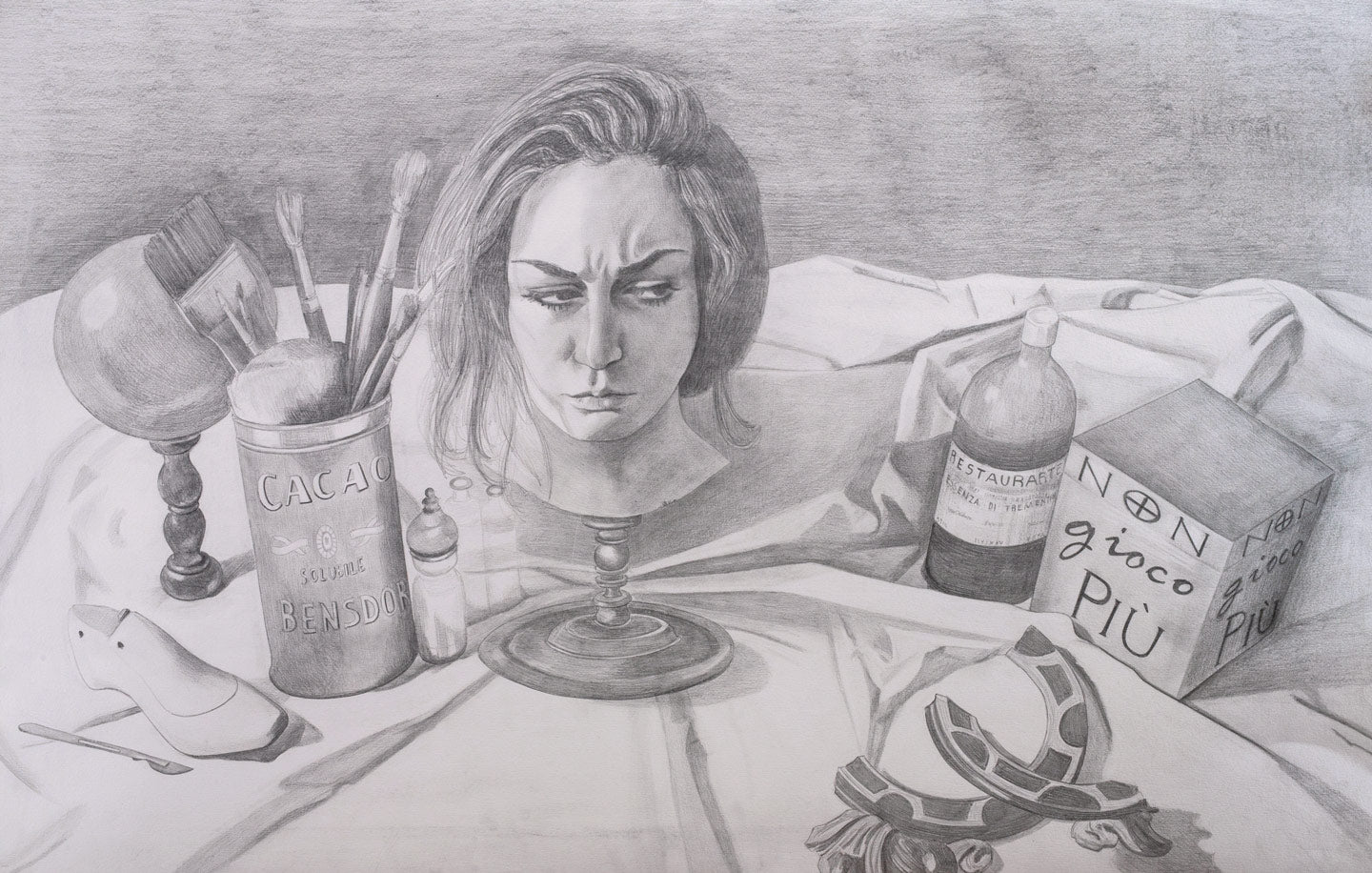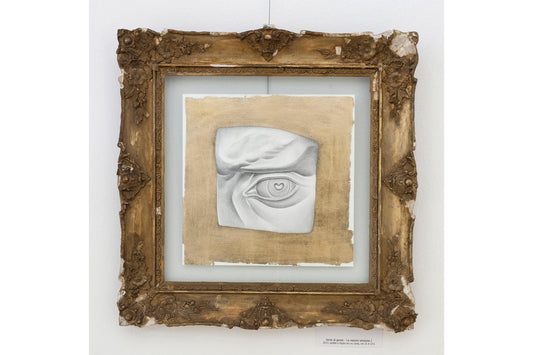The Self-portrait
Since I started drawing, one of my favorite subjects was myself.Beware that this was not a matter of vanity but of convenience!
In fact, I was always at hand, so I was the model I had the easiest access to…
What began out of pure and simple practical necessity imposed by academic exercises turned very soon into a real and profound interest in self-portraits.

The mythical origin of the self-portrait
The mythical origin of the self-portrait dates back to the myth of Narcissus, who tells a story of the loss of the world and the acquisition of a vision of one’s own face.Narcissus states “This is my face” and the myth was born to answer one of the most frequent questions that man has ever asked himself: “Who am I?”
Each man is unknown to himself; we can only glimpse the periphery of our body, but the vision of our face, without the use of an aid, is denied to us.
The mirror: a lying mediator
The mirror, the instrument or aid most used in the past by artists who wanted to investigate this theme, allows us to “see ourselves while we are seeing ourselves”.It is a kind of mediator; it is the bridge that connects us to our image.
However, despite its undisputed ability to faithfully reproduce our features, the mirror will never give us back our real image but only a copy of it in which the symmetry is reversed.
Hence my claim that the mirror is a kind of lying mediator.

An artistic exercise against nature
But why has nature deprived us of the knowledge of our face?Did she think that this sort of blindness could protect us from something?
Or maybe instead, this not being able to see oneself inherent to our nature is just a subtle irony, an anticipation of what man soon realized: the elusiveness of his own identity.
Therefore, the self-portrait, the reverse of the portrait, could seem like a stretch, an experiment against nature…
Yet, this insidious and unnatural operation has attracted numerous artists who, fascinated and sometimes tormented, have tried to outline their own identity.
In the self-portrait, the artist doubles himself becoming a performer and model.
He stages himself, or rather, the double of him, his alter ego.
As the philosopher Massimo Cacciari states:
“Our” socius “, ourselves, is an” alter “, is another – who surprises us, seduces us, captures or tears us – but with whom we co-inhabit.”
This theme was also deeply felt in Trieste art (my birthplace), in which the lack of sense of belonging given to a borderland has led artists very dear to me (such as Léonor Fini and Arturo Nathan) to use the self-portrait as a favorite tool for probe the deep roots of one’s own interiority.
Given that the problem of identity is an increasingly central issue in today’s society, I too have decided to explore it – without pretensions of any kind – using the self-portrait.
Click below if you want to see my other interpretations of the self-portrait.
Click here to discover the “Self Portraits” collection
If you want to read the other articles that talk about my works’ other subjects, you find the links below.
– Click here to read the article about the Animals on Pedestal
– Click here to read the article about the Female Portraits
– Click here to read the article about the Still Lifes
Now I’d better go back to sharpening the pencils. See you soon!




